International
Trump, Joe Rogan talk about corrupt media, vaccines, ‘gender transitions’ for children in 3-hour interview
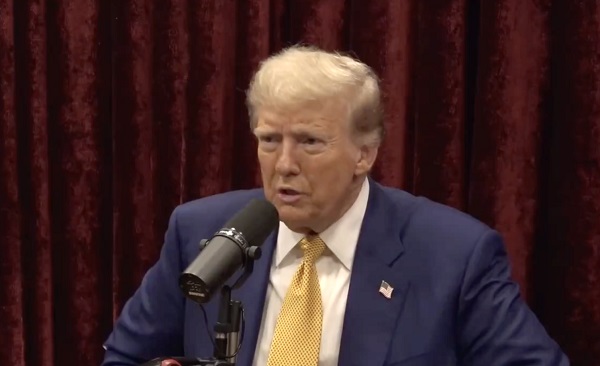
From LifeSiteNews
By Stephen Kokx
In a highly anticipated interview with Joe Rogan, Trump rebuked ‘gender transitions’ for minors, said there must be voter ID and no mail ballots in the future, affirmed that Robert F. Kennedy Jr. will be part of his administration, and vowed to end the war in Ukraine.
Debunking claims from the Harris campaign that he is “exhausted,” Donald Trump sat down with popular podcaster Joe Rogan on Friday for an extensive, though not entirely earth-shattering, three-hour interview.
During the recording at Rogan’s Austin, Texas-based studio, Trump made no major missteps; nor did he or his interrogator tread new ground. Instead, the two held a relaxed conversation about issues Trump has addressed over the past several years, though some remarks about aliens were new.
Rogan initially asked Trump what it was like becoming president. Trump said it was a “surreal” experience while also praising the grandeur of the White House, explaining that he was especially in awe of the Lincoln bedroom. He then went on one of his famous “weaves” or tangents about how President Lincoln had “the yips” when it came to fighting Confederate General Robert E. Lee.
Trump admitted to Rogan – as he has to others previously – that he hired “many people” he shouldn’t have, like Bush-era neocon John Bolton. He reiterated that he was a “New York guy” all his life and not a D.C. guy, so he had to rely on others to help him appoint his cabinet. Trump has recently said elsewhere that he knows how “the swamp” works now and that he wouldn’t make the same staffing mistakes if re-elected.
Donald Trump says the biggest mistake of his presidency was hiring neocons. pic.twitter.com/FruMi04tJv
— The American Conservative (@amconmag) October 26, 2024
The most interesting parts of the interview didn’t come until the 2-hour mark, when Rogan praised Trump’s embrace of Robert F. Kennedy Jr.
Rogan asked Trump how he plans on “making America healthy again” with Kennedy, to which Trump responded by saying Kennedy has lots of ideas and that his presence in the campaign has many executives in Big Pharma worried. Regardless, he said Kennedy will 100 percent be part of his administration and will be able to do “whatever [he] want[s],” though not with environmental issues.
Joe Rogan says he loves Donald Trump and Robert Kennedy Jr. teaming up to Make America Healthy Again. 🇺🇸🇺🇸
ROGAN: "Are you completely committed to him in your administration?"
TRUMP: "Oh, I am. I said, focus on health. You can do whatever you want."
ROGAN: "Do you have anyone… pic.twitter.com/w5idXALoDe
— KanekoaTheGreat (@KanekoaTheGreat) October 26, 2024
Rogan also asked about vaccines, though he didn’t press Trump on his controversial Operation Warp Speed initiatives. Trump seemed to agree with what Rogan was saying about how vaccines can cause adverse health issues, but the two disappointingly didn’t pursue the topic at length. Still, Rogan reminded Trump that the U.S. is one of only two countries that allows pharmaceutical drugs to be advertised on television.
“What a lot of these drugs do is act to mitigate the effects of poor metabolic health. Most of these problems that these people are suffering from wouldn’t exist if we put an emphasis on metabolic health,” he said. “If people got healthier… a whole host of these problems that people are having would go away. And the problem with that from the pharmaceutical drug standpoint is they wouldn’t be able to sell drugs to these people… If we can send $175 billion to Ukraine, we can do something to fix a lot of the health problems the United States has.”
Trump agreed that there are many “side effects” to certain drugs and that he would “never take” some of them.
Trump told Rogan that his teenage son Barron has helped him with his podcast strategy, as he has appeared on a number of shows watched primarily by young men, also called “Zoomers,” in recent weeks. The approach has resulted in a massive uptick in favorability among male voters under 25 years of age. Rogan notably told Trump that “the media, to a large extent, acts as a propaganda arm of the Democrat Party.” He said that independent media is how you get around that.
TRUMP: "It's a lot easier if you are a Democrat."
ROGAN: "The media, to a large extent, acts as a propaganda arm of the Democrat Party… Most young people are aware of it. I think boomers still read the newspapers and believe in CNN."
pic.twitter.com/8Y7wtqHWne— CatholicVote (@CatholicVote) October 26, 2024
Rogan further commented on the political realignment taking place under Trump. He said that “the rebels” are “Republicans now. You want to be a rebel? You want to be punk rock? You’re want to like buck the system? You’re a conservative now.”
“And then the liberals are now pro-silencing criticism,” he added.
Rogan spend a large chunk of the rest of the interview asking Trump to provide more evidence of 2020 election interference. Trump, who has repeatedly discussed the topic before, especially during his debates with Biden and Harris, brought up the Russia collusion hoax, the suppression of the Hunter Biden laptop story, and how states changed voting laws in the lead-up to the election and said that, in the future, there must be voter ID and no mail-in ballots.
.@joerogan: Not having Voter ID is the most bizarre argument that I've never seen anybody articulate in a way that's convincing.
PRESIDENT TRUMP: Because they want to cheat.
ROGAN: Well, it doesn't make sense any other way. pic.twitter.com/KfiazrahkP
— Trump War Room (@TrumpWarRoom) October 26, 2024
Rogan agreed with the voter ID proposal while adding that he’d like to see debates change so the candidates sit down and simply discuss issues on their own without moderators.
The last half hour of the conversion proved to be the most relevant for religious and conservative Americans. After telling Rogan that Kamala Harris, who he called a “very low IQ person,” would be “lying on the floor comatose” if she appeared on his show, Trump hit back at her for claiming he is Hitler, saying that she is losing badly.
Trump also received praise from Rogan for his “comedic” timing and sensibilities, especially at his rallies. Rogan said that in order to do well in politics one should approach it with that sort of mindset at times. He praised Trump especially for his performance at the Al Smith Dinner earlier this month.
Trump also criticized pollsters, calling many of them “probably fake,” while also rebuking “sex change” surgeries for minors without parental consent and the Democratic Party’s push to ensure gender-confused males are able to compete in women’s sports. Rogan called that idea one of the most “bizarre and polarizing ideas of the left.”
"Who's going to vote for someone who wants to have men playing in women's sports?"
Donald Trump goes off on the Joe Rogan podcast on the far-left radical gender theory promoted by democrats, that's not popular by the electorate but by party elites. pic.twitter.com/vma471bwNo
— Efrain Flores Monsanto 🇨🇦🚛 (@realmonsanto) October 26, 2024
The remainder of the interview was spent talking about the JFK files, extraterrestrials, and the war in Ukraine. Trump said, as he has before, that his CIA director at the time Mike Pompeo as well as other “good people” asked him to not release all of the JFK files. But Trump appeared to say he would release the other 50 percent of them so the nation could have a “cleansing.”
Rogan then asked Trump about aliens. Trump cryptically referred to them as “people coming from space” while recalling that he has spoken with pilots in the military who have told him they have seen objects in the sky that could not be operated by human beings.
Before ending the podcast Trump told Rogan that he will meet with both Putin and Volodymyr Zelenskyy and end the war in Ukraine immediately.
Trump said that he will ensure the U.S. is respected again if re-elected and that the Chinese in particular are “dreaming” about a Harris presidency because they will take advantage of America if she is in office.
“She can’t put two sentences together … these guys are very smart; they’re very streetwise and they’re very tricky and evil and dangerous. And if she becomes the president of the United States — which I cannot believe can happen — I don’t think this country’s going to make it. I think really bad things will happen to our country.”
Following the interview, Trump flew to the battleground state of Michigan for a rally that began after 10 pm.
Great Reset
U.S. rejects WHO pandemic amendments, citing threat to sovereignty

Quick Hit:
- The U.S. State Department and HHS transmitted the official rejection of the 2024 amendments to the WHO’s IHR.
- Officials cited threats to national sovereignty, vague terminology, and the WHO’s political susceptibility—particularly to China—as grounds for rejection.
- The amendments would have mandated WHO-led responses, digital health documentation, and “equitable access” initiatives regardless of U.S. withdrawal from the WHO.
RFK Jr. just announced he has rejected the WHO’s draconian new pandemic treaty.
Every American should care about this.
“Last year, the World Health Organization’s governing body made some far-reaching amendments to its international health regulations, otherwise known as the… pic.twitter.com/GI9UzsTrKv
— MAHA PAC🗽 (@MAHA_PAC) July 18, 2025
Diving Deeper:
The rejection represents a sharp rebuke of the World Health Assembly’s 2024 amendments to the International Health Regulations (2005), which sought to centralize global pandemic decision-making power within the WHO. Kennedy and Rubio emphasized the amendments’ “vague and broad” language and their potential to create policy rooted in politics and global “solidarity” rather than science and national interest.
Among the most controversial changes were new authorities for the WHO to unilaterally declare health emergencies, coordinate international responses, and guide member states toward “equitable access” to vaccines and other health commodities. The amendments also encouraged countries to implement digital health documents—raising red flags for privacy and surveillance concerns.
“The amendments risk unwarranted interference with our national sovereign right to make health policy,” the joint statement read. Kennedy and Rubio specifically criticized the lack of public input in drafting the new rules and warned that WHO directives could suppress legitimate scientific debate and restrict Americans’ freedom of speech under the guise of “controlling misinformation.”
The officials pointed to the WHO’s well-documented failures during the COVID-19 pandemic, including its deference to the Chinese Communist Party, as a stark example of why international bodies should not be granted binding authority over U.S. domestic policy. “These amendments… fail to adequately address the WHO’s susceptibility to political influence and censorship—most notably from China—during outbreaks,” the statement noted.
Even more alarming, the statement highlighted that the amended rules would have bound the U.S. regardless of its current status in the WHO, essentially imposing obligations on a nation that is no longer part of the organization. This drew particular concern from Rubio, who has long warned against ceding U.S. autonomy to global institutions.
In reaffirming their commitment to “put Americans first,” Kennedy and Rubio vowed to continue resisting international encroachments on U.S. freedoms. “We will not tolerate international policies that infringe on Americans’ speech, privacy, or personal liberties,” they declared.
This formal rejection marks a victory for critics of globalism and top-down health mandates, signaling that under the current administration, American decision-makers are prioritizing sovereignty, transparency, and constitutional protections over global consensus driven by unelected bureaucrats.
Crime
Former Epstein lawyer: There was never a client list
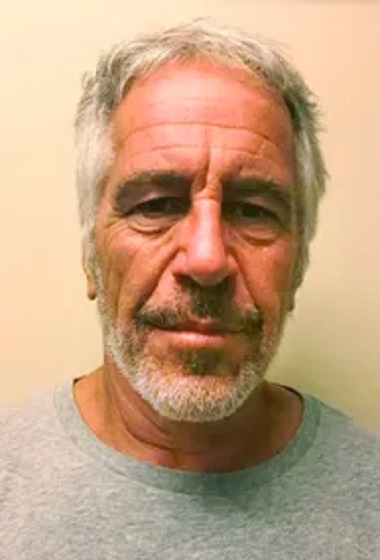
Quick Hit:
Jeffrey Epstein’s former attorney Alan Dershowitz says there was never a “client list,” calling the claim fiction in a Wall Street Journal op-ed. He also defended President Trump, saying there’s no evidence of any improper or questionable behavior.
Key Details:
- Dershowitz wrote that Epstein “never created a ‘client list,’” and clarified that the FBI only documented names brought up by alleged victims in interviews, which were redacted in released files.
- He stressed that none of the redacted names are current officeholders and added that the veracity of the accusations remains unknown.
- Dismissing rumors of hidden cameras used to entrap guests, Dershowitz said surveillance tapes existed only in public areas and were installed by law enforcement—not Epstein.
Diving Deeper:
In a Wall Street Journal op-ed this week, constitutional attorney Alan Dershowitz addressed lingering speculation surrounding the late Jeffrey Epstein, his alleged surveillance operation, and his reported ties to public figures. Dershowitz, who represented Epstein years ago and has consistently challenged many media narratives surrounding the case, said the facts don’t support the sensational claims.
“Epstein never created a ‘client list,’” Dershowitz wrote, pushing back on the widely circulated notion that Epstein maintained a record of high-profile individuals for the purpose of blackmail. He clarified that the FBI had compiled names mentioned by alleged victims during interviews, but that those names were redacted in publicly released documents. “We don’t know whether the accusations are true,” he added. “The names mentioned don’t include any current officeholders.”
Dershowitz also sought to debunk claims that Epstein maintained a secret camera system in his guest bedrooms to entrap powerful visitors. “There are videotapes, but they are of public areas of his Palm Beach, Fla., home,” he wrote. According to Dershowitz, those surveillance cameras were installed by police after Epstein reported that money and a firearm were stolen from the property. “I am not aware of video cameras in guest bedrooms,” he added.
Turning to President Donald Trump, Dershowitz flatly denied that any evidence exists linking him to wrongdoing. “Open records show an acquaintance between Epstein and President Trump many years ago,” he wrote, before emphasizing that the relationship ended long ago. “That relationship ended when President Trump reportedly banned Epstein from Mar-a-Lago, long before becoming president the first time.”
“I have seen nothing that would suggest anything improper or even questionable by President Trump,” Dershowitz concluded.
His remarks arrive amid a resurgence of political and media interest in Epstein’s associations. But Dershowitz’s message is clear: much of the speculation is unsupported by evidence, and President Trump’s name should not be dragged into narratives that have no basis in fact.
-
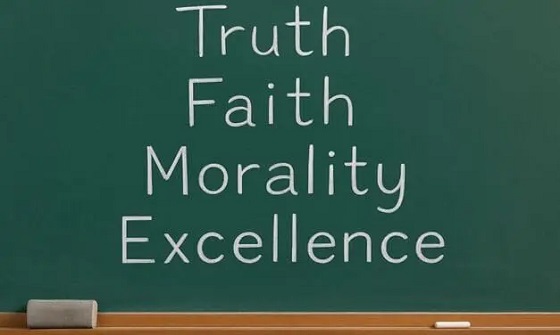
 Education1 day ago
Education1 day agoWhy more parents are turning to Christian schools
-

 Alberta1 day ago
Alberta1 day agoUpgrades at Port of Churchill spark ambitions for nation-building Arctic exports
-

 Alberta1 day ago
Alberta1 day agoOPEC+ is playing a dangerous game with oil
-
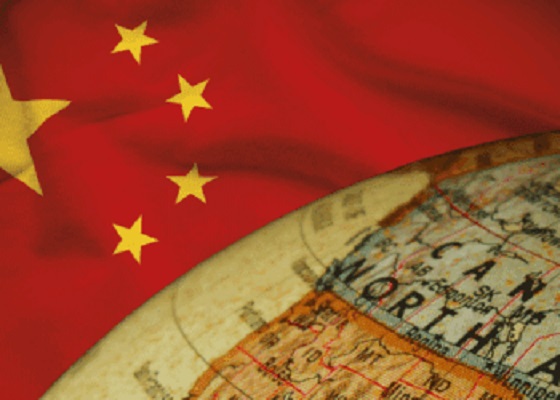
 Business1 day ago
Business1 day agoIs dirty Chinese money undermining Canada’s Arctic?
-
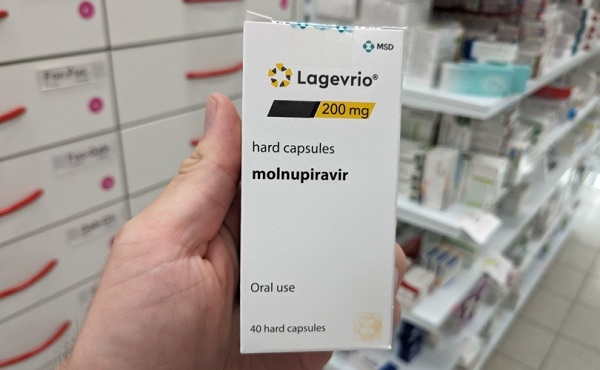
 COVID-191 day ago
COVID-191 day agoJapan disposes $1.6 billion worth of COVID drugs nobody used
-

 conflict1 day ago
conflict1 day agoOne of the world’s oldest Christian Communities is dying in Syria. Will the West stay silent?
-

 COVID-191 day ago
COVID-191 day agoWATCH: Big Pharma scientist admits COVID shot not ‘safe and effective’ to O’Keefe journalist
-

 Bruce Dowbiggin1 day ago
Bruce Dowbiggin1 day agoHow Did PEI Become A Forward Branch Plant For Xi’s China?





